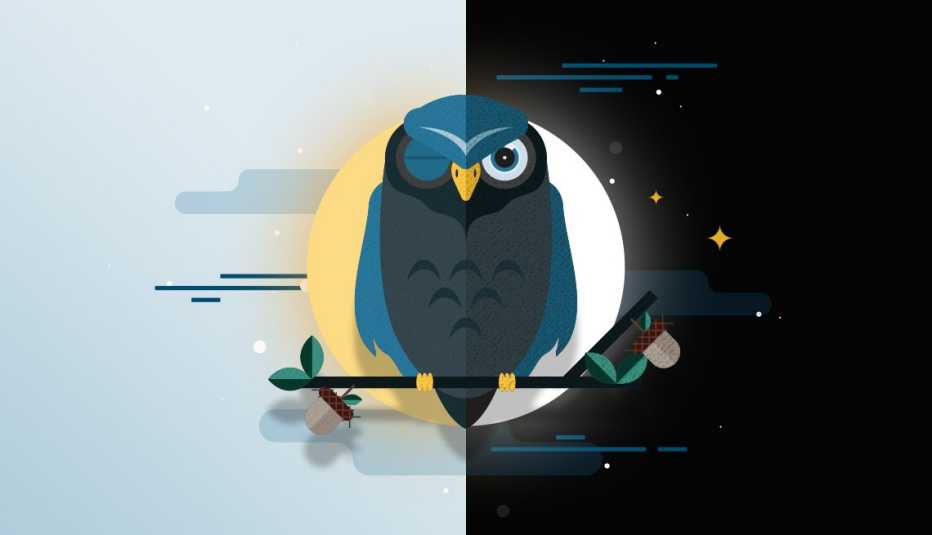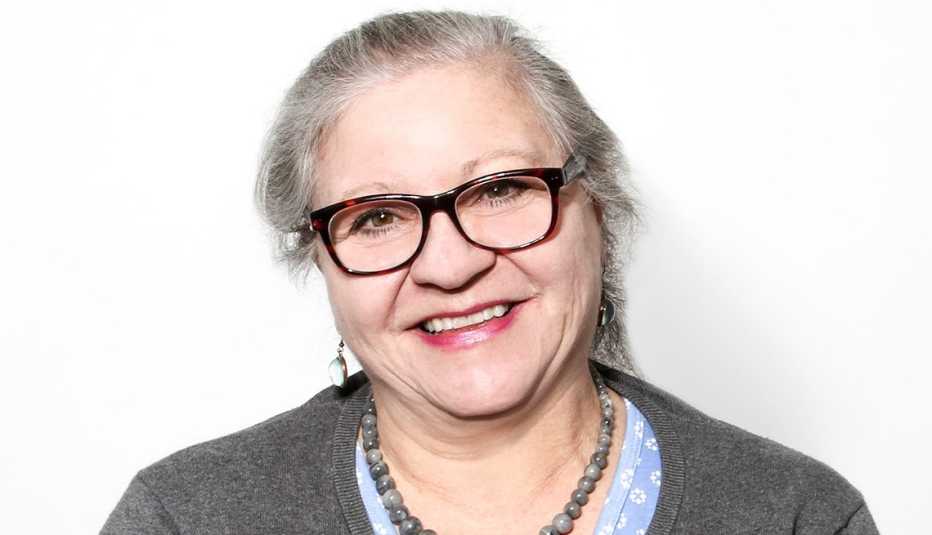AARP Hearing Center


It’s 1 a.m., and I’m sitting in my living room, watching what I choose on TV, as happy as a clam. I don’t have to justify myself if I want to turn the thermostat higher; I don’t need to negotiate over whether to mute the commercials. I can just do me.
Is it any wonder this is my favorite time of day?
Upstairs, my husband of 35 years has been asleep for hours. He’ll be up by 3:30, hurrying downstairs to make himself a big hot breakfast, then dashing off to the gym before he heads for work. Me, I’ll sleep in till the last possible minute, grab coffee at Dunkin’, and barely make it to my office at the appointed hour.
Doug is viewed by society at large as a rock, a pillar, a stand-up guy with clean morals and a superb work ethic. Me? I’m a slug. I’m dragging down Western Civilization. I’m what’s left at the tail end of human evolution — a lazy, shiftless profligate who should be thoroughly ashamed of myself.
I blame Ben Franklin for this.
Actually, I should start with whatever dude wrote the Book of Proverbs. While Ben was responsible for that “Early to bed, early to rise” crapola, it was some nameless biblical sage who decreed, “Do not love sleep or you will grow poor.” And, man, that advice lingered. In the 20th century, everyone from Opus Dei founder Josemaría Escrivá (who gave the name “the heroic minute” to that instant when the alarm goes off and by sheer force of will decent humans everywhere spring from their beds, already giving thanks for the newfound day) to Fortune 500 CEOs (proud members of the 4 a.m. club, the hour at which they are apparently able to make even more money without interruption) has extolled the virtues of getting up an hour early enough to mean you will never really be that much fun at parties.


I say to hell with all that.
Listen, I raised two kids, so I know all about early rising. But those kids are now having kids of their own. (Suckers!) I no longer have a dog who needs to be let out into the yard, just a cat who’s blessedly nocturnal. There’s no earthly reason for me to wake up with the sun. So I’m not going to.





























































More From AARP
The Science of Sounder Sleep
Why you may be tossing and turning like never before — and how research shows you can change that